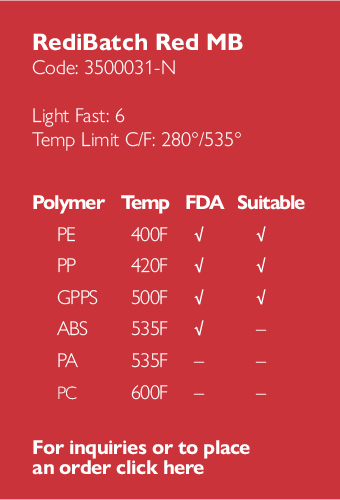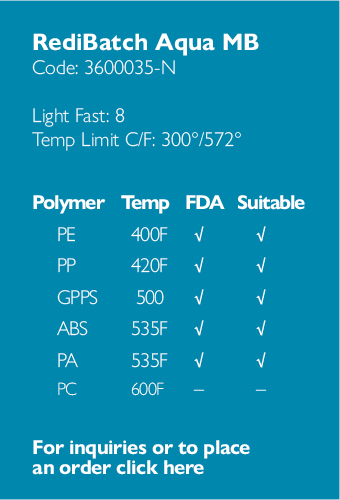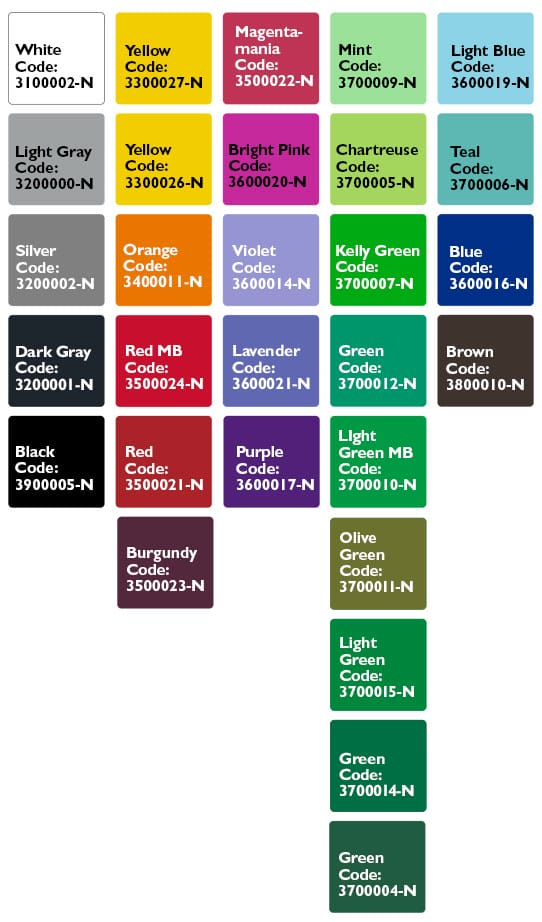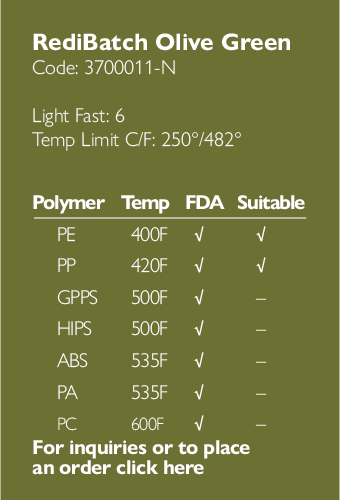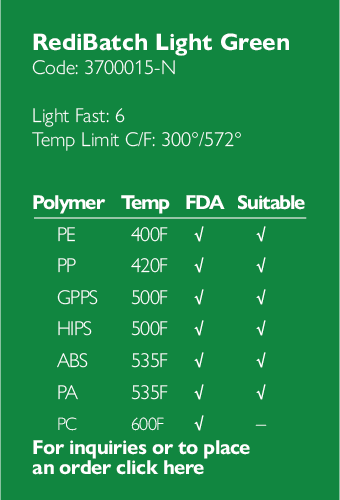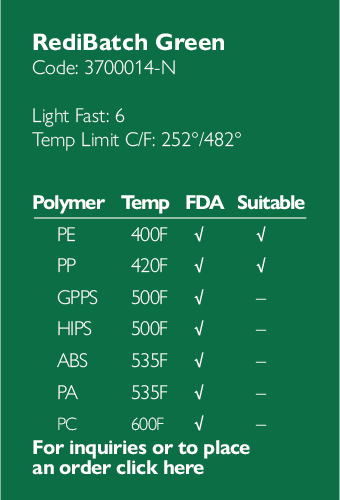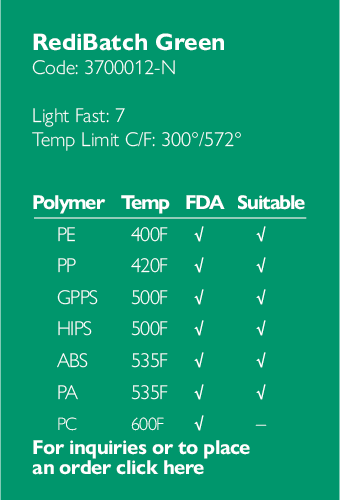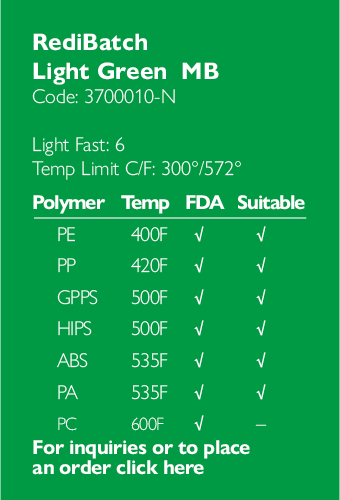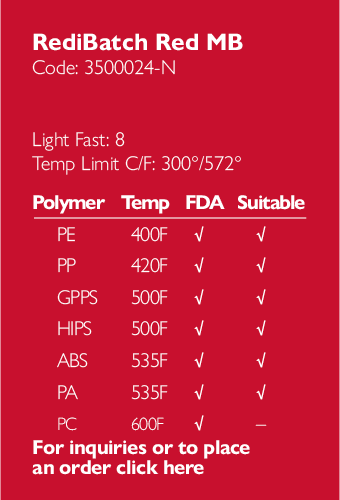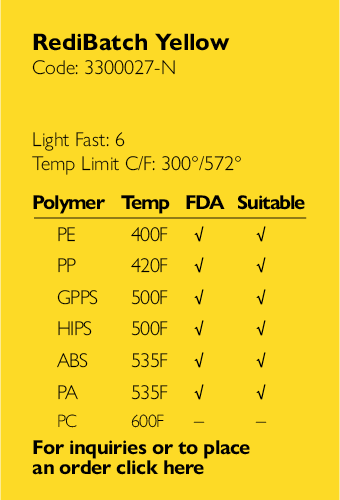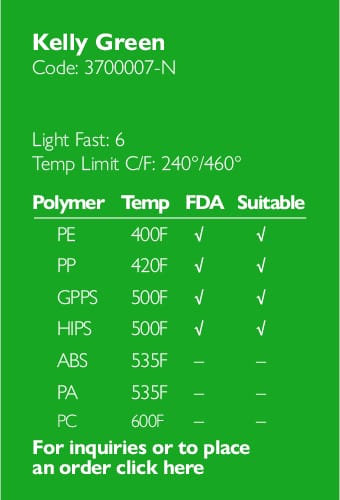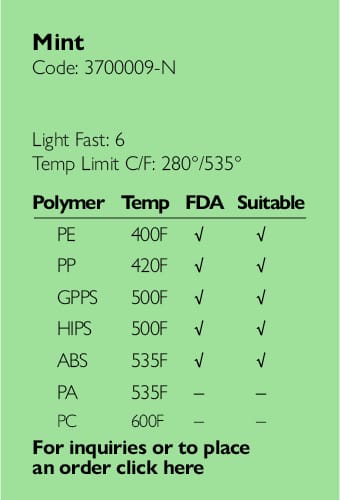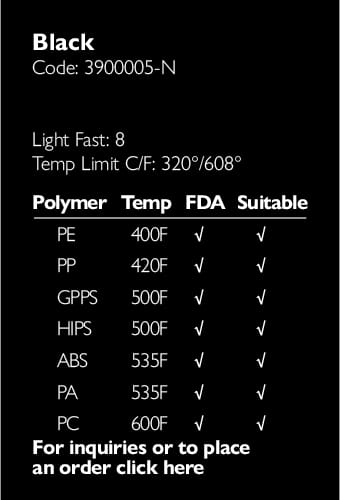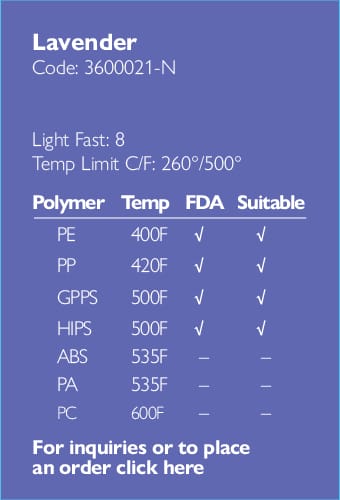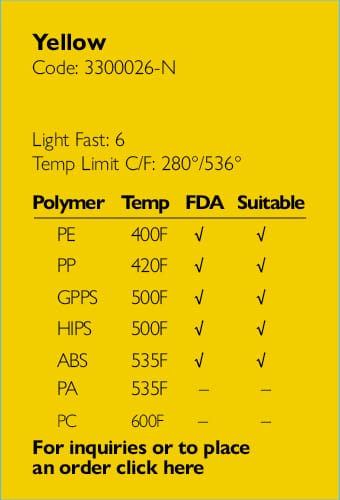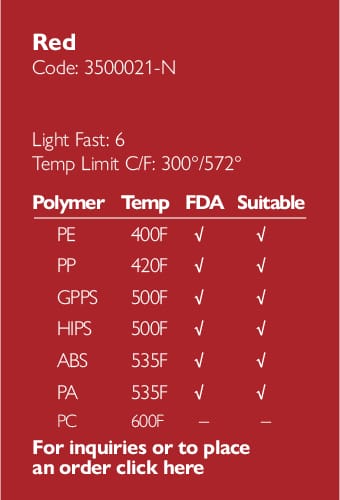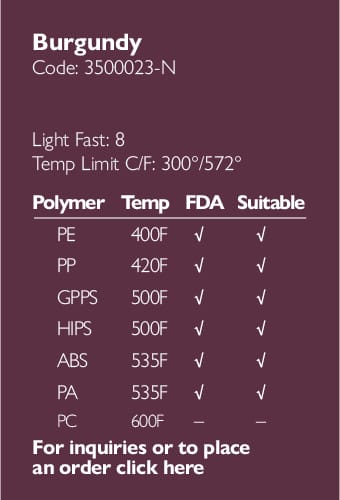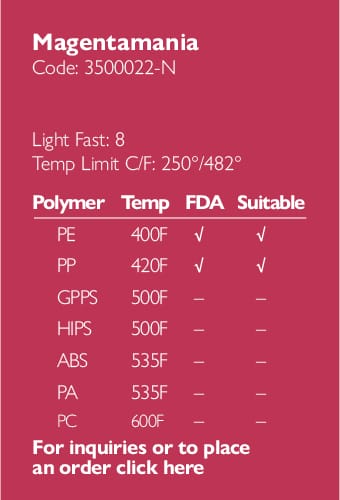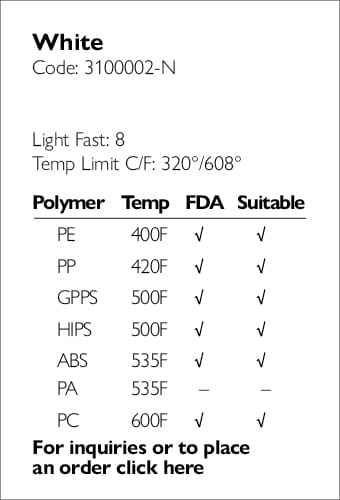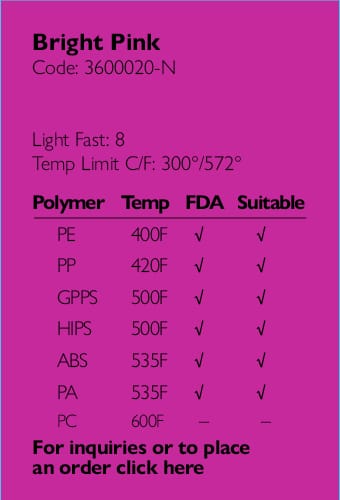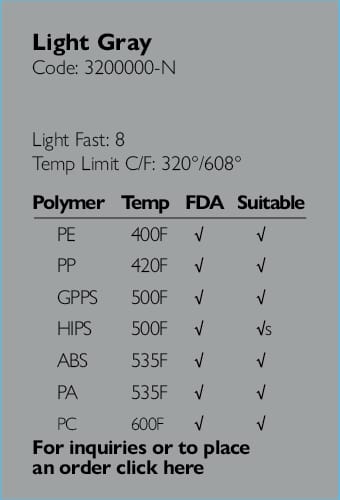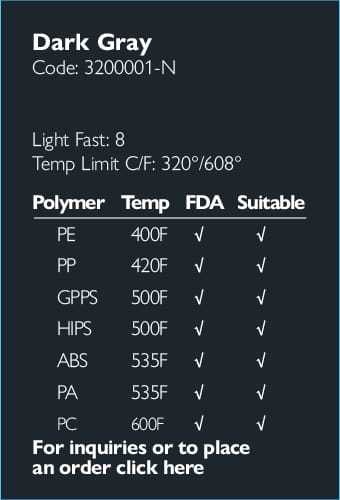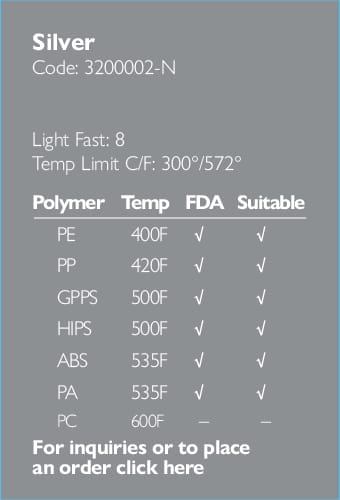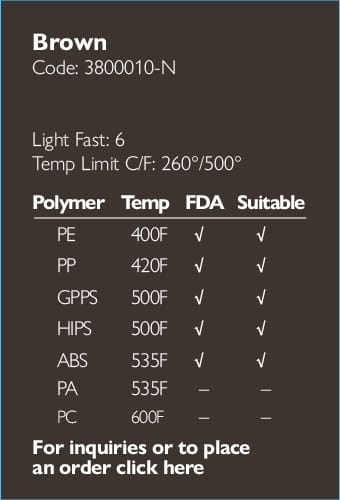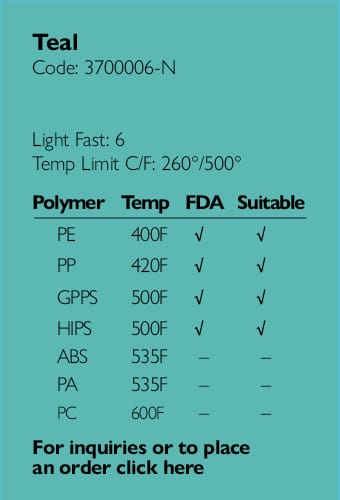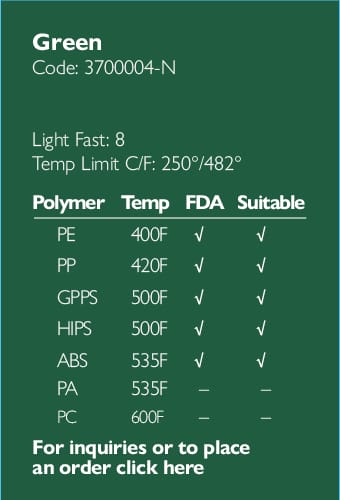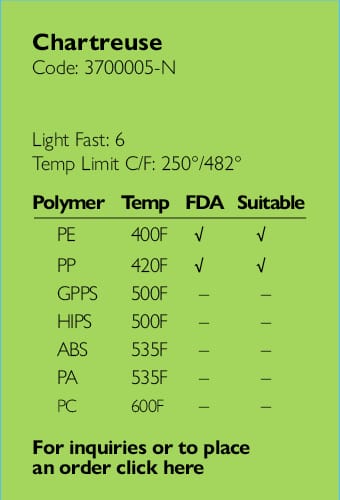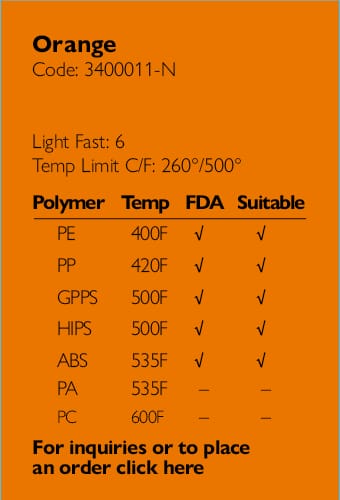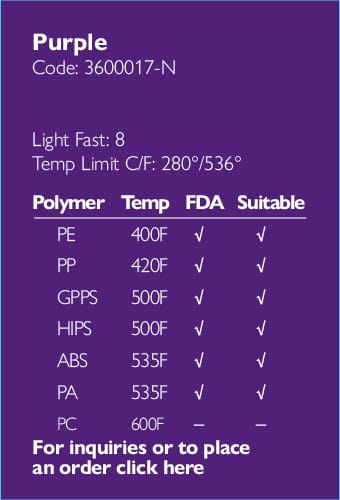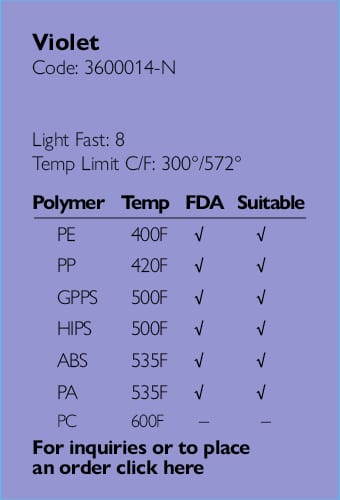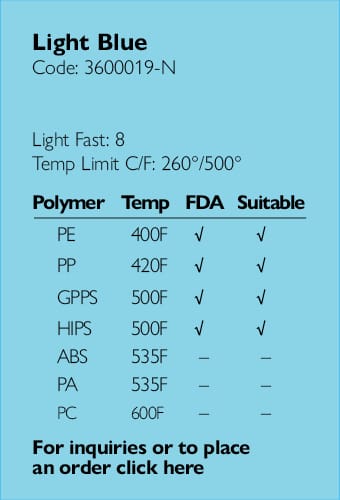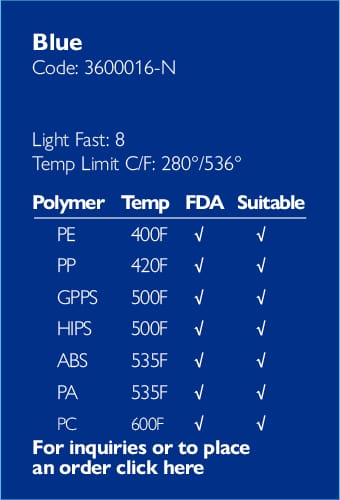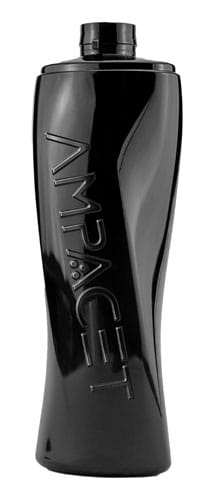 Ampacet, a global masterbatch leader, has obtained COTREP certification for its NIR-sortable black masterbatches REC-NIR-BLACK 1900302-EA and 4900147-E designed for polyolefin rigid applications.
Ampacet, a global masterbatch leader, has obtained COTREP certification for its NIR-sortable black masterbatches REC-NIR-BLACK 1900302-EA and 4900147-E designed for polyolefin rigid applications.
Pellenc ST has performed successful dynamic NIR sorting tests on black HDPE and PP bottles following COTREP protocols, making Ampacet the first company to obtain COTREP certification for black masterbatches using these types of resins. COTREP is a technical committee for the recycling of plastic packaging in France founded by Citeo, Elipso and Valorplast.
“Using these Ampacet REC-NIR-BLACK masterbatches allows companies to place items in black packaging on the French market without incurring the malus tax (10% for 2020) applied on top of the Ecotax, as set by CITEO, France,” said Philippe Hugelé, Ampacet Strategic Business Manager Molding.
“The European Plastic Strategy and Circular Economy Action Plan sets the goal of recyclability of plastic packaging by 2030, with a minimum of 50% of plastic packaging recycled by 2025. Ampacet REC-NIR-BLACK masterbatches provide a significant contribution to the recyclability of black plastic products,” added Hugelé.
Part of R3 Sustainable Solutions, Ampacet’s mission to develop new and innovative products that help to protect our environment, REC-NIR-BLACK was named a Plastics Recycling Awards Europe 2019 winner in the category of Product Technology Innovation of the Year.
REC-NIR-BLACK masterbatches are near-infrared (NIR) transparent to allow sorting with near-infrared optical sensors and recycling. This technology enables the reuse, repair and recycling of black packaging waste and allows recyclers to valorize this waste and support the circular economy.
To recycle plastic packaging into usable resins, plastic waste is presorted by resin type at plastic recovery facilities. Presorting, an essential and challenging step, especially with the various characteristics of each resin type, results in a pure stream of resin. In most recovery facilities this is accomplished with automated sorting technologies using near-infrared optical sorters.
Near infrared optical sorting, however, can not identify and separate plastics that contain carbon black, the most commonly-used black pigment. Carbon black absorbs a significant part of the ultraviolet and infrared spectrum, preventing the reflection of infrared light back to the sensor and consequently blocking the recognition of the resin’s fingerprint by a NIR scan.
While most black packaging cannot be sorted by recycling companies and can only be disposed of in a landfill or used for energy recovery, packaging using Ampacet’s NIR-detectable black masterbatch products can be scanned by near-infrared technology for automated sorting at recovery facilities.
For more information, please contact us at marketing.europe@ampacet.com.
About Ampacet R3 Sustainable Solutions
R3 refers to the global circular economy mission statement: reduce, reuse and recycle and transitioning from a regional linear take, make and waste model. This will benefit Ampacet’s current businesses, customers and the planet without compromising the needs of future generations. Ampacet strives to be part of the solution rather than part of the problem of plastic waste mismanagement, over-use and other types of environmental waste.







